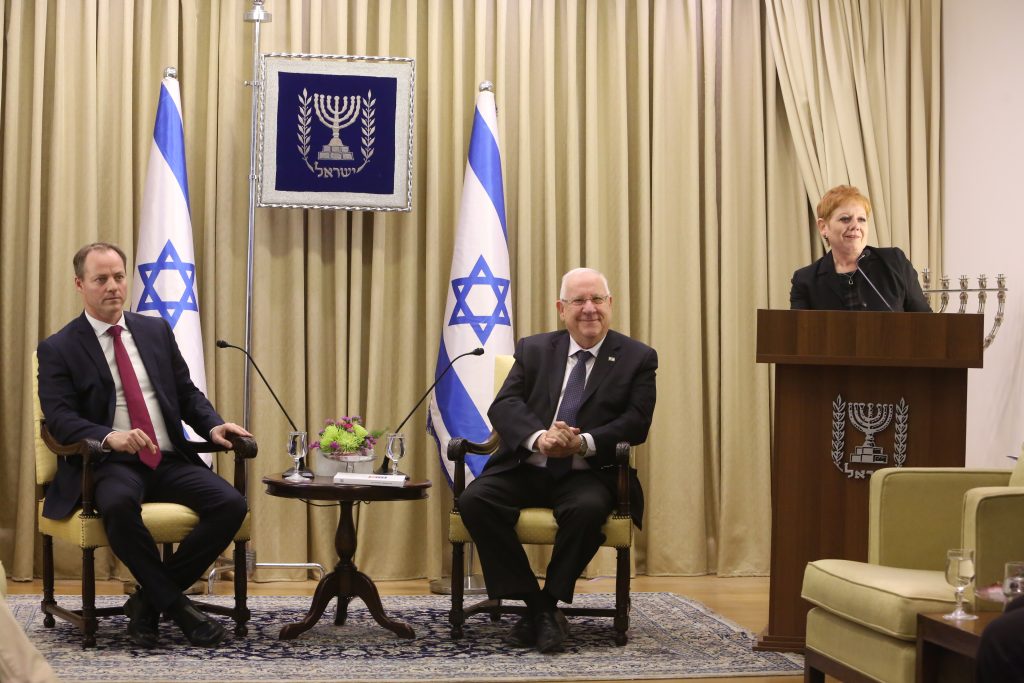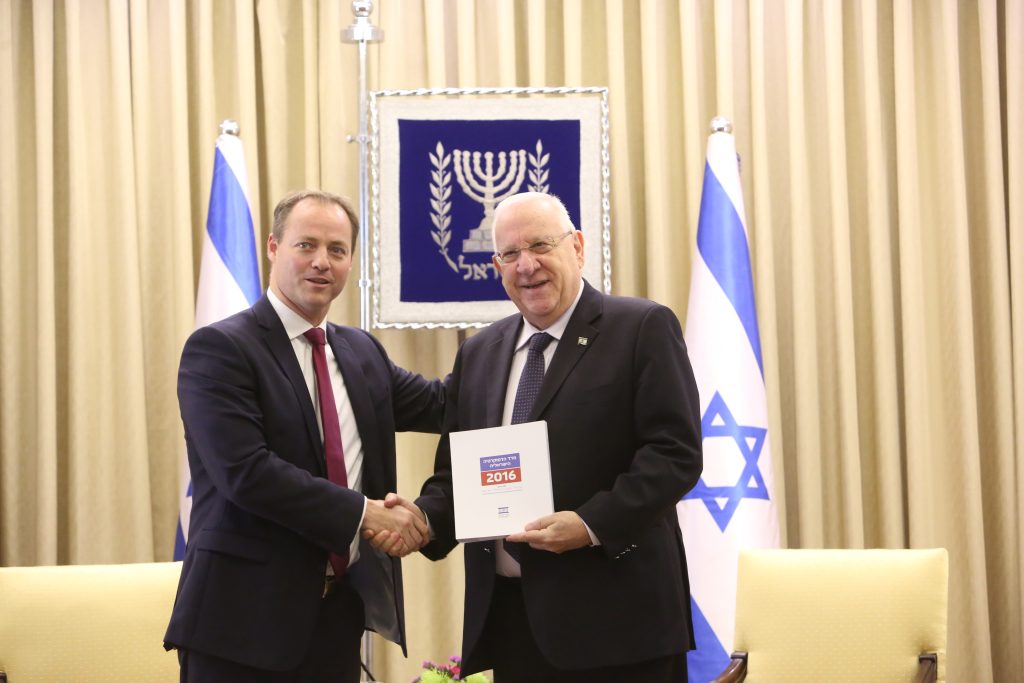“Israel has its challenges, but it’s a healthy society,” said Yohanon Plesner, president of the Israel Democracy Institute (IDI), a 25-year-old independent center of research and action dedicated to strengthening the foundations of Israeli democracy. “Eighty-five percent of Israelis are proud to be Israeli and feel connected to the state.”
IDI, which recently released its Israeli Democracy Index — which it has published since 2003 — was created with the idea that to develop and shape policy and legislation, Israel needed an institute to “provide evidence -based analysis to government agencies.” Thus, IDI became a “government ecosystem to develop policy,” Plesner said.
A non-partisan think tank, IDI works with government agencies and other decision makers to bolster and balance the values and institutions of Israel as a Jewish and democratic state. It addresses governance by identifying structural problems of governing and political institutions. IDI also attempts to find balance between democratic and civic issues, working with the unique challenges arising from Israel’s dual identity as a Jewish nation state and a liberal democracy, to develop workable policy in a multi-sector society.

“Israeli society is composed of many groups and subgroups,” Plesner explained. “Being a Jewish state is very central in the identity of the majority, regardless of religiosity. The growing ultra-Orthodox group, now with 11 percent of the population but 30 percent of the first graders, has to be understood and addressed. It can be a huge potential source of economic growth if we integrate these people into society and provide the skills to help them succeed in the 21st Century.”
He added, “The Arab minority of 20 percent has the highest levels of poverty. It’s in the national interest to make sure it’s properly integrated.”
According to the survey, more than 70 percent of Israelis feel that they can trust other Israelis in times of need. They are very committed to Israel’s democratic character. Fifty-five percent of Israeli Arabs are proud to be Israelis, but there are challenges. “Arabs want more equality and better opportunity, but there is an optimistic side,” Plesner said.
“It’s a complex, multifaceted picture,” he explained. “Arabs living next to the green line or in Jerusalem want to stay in Israel. Now 78 percent want their representatives to be in the Israeli government.”
One of the major challenges in Israeli society is the social rift between Jews and Arabs. While Arab citizens “prefer a benign definition of the Jewish democratic state,” 70 percent of the Jews “don’t think Arabs should be part of a decisionmaking process like a peace accord,” according to Plesner. “If the Palestinians are the active enemy, how can we trust them? But in a democracy, we need equal political rights.”
Another challenge is the fact that Israel has been under an ongoing security threat for decades. As Plesner explained, “In all societies, there is a tendency to allow for strict security measures under times of threat. Because we’re under constant threat, there is a concern about civil liberties. We have to develop the right means and tools for the right responses, whether it is a loan wolf attack from the West Bank or rockets from Gaza in the south or Hezbollah in the north.”
The military forces have developed policies that preserve an open society while keeping the peace. IDI’s multidisciplinary group of scholars is attempting to “craft policies that allow for degrees of freedom but draw sensible limitations,” Plesner said. “We’re helping to translate what that means for a colonel preparing to launch an implementation in concrete terms.”
In the case of Elor Azaria, the IDF soldier who was convicted of shooting and killing a seemingly incapacitated Palestinian terrorist in Hebron, Israeli society was divided on the outcome, especially among younger people. Plesner explained that in times of conflict and combat, Israel expects soldiers to “engage, capture and, if necessary, eliminate the enemy but safeguard the human dignity of terrorists and enemy soldiers after capturing them. The moral distinction means that the soldier has to do his utmost to keep a terrorist from killing people but 10 minutes later, he is obligated to see that his wounds are treated.”
Plesner believes that younger people have a problem accepting these norms, because social media outlets have given traction to other opinions. He also believes that there are mixed messages about the validity of values coming from top leadership without political debate and that the continuation of the threat of terror makes people expect that the government will widen the degrees of freedom of interpretation if terror is looming.

One key finding in the 2016 Israeli Democracy Index was a significant drop in the lack of trust in government institutions and politicians. Plesner called that trend a “reflection of the dysfunctionality of political institutions and the electoral system, which creates the wrong incentives for politicians.” He added, “There is an urgent need to reform the electoral system, to fix the primary system and party institutions.”
Plesner related that the IDI has developed blueprints for change, and he believes that public trust will increase accordingly. Because the Knesset is “fragmented,” a coalition system in which political parties have to engage with partners, there is a “shortsighted” approach with ongoing political maneuvers instead of planning and preparing for the long term.
“Parties are unable to fulfill their basic roles of growing leadership and developing ideas to improve policy,” Plesner concluded. “Instead, they have weak platforms to regulate the competition and give disproportionate power to extreme groups and special interests. This situation can and ought to be changed, and we’re working on helping the government to do that.”
